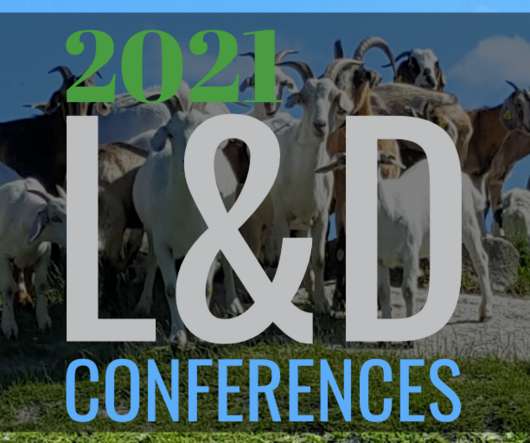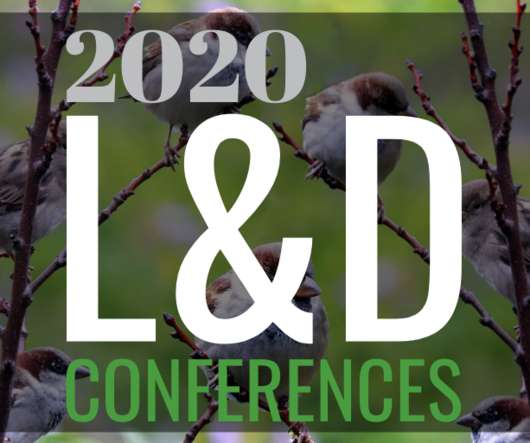2009 Review
Experiencing eLearning
DECEMBER 31, 2009
TCC09: Digital Storytelling in a Web 2.0 Looking at just the numbers, my number of views didn’t increase dramatically in 2009. Image Credit: cc licensed flickr photo shared by uhhhlaine. These are my top posts according to the social signals measured by eLearning Learning : Blogging in a Walled Garden. Why a Wiki?








































Let's personalize your content